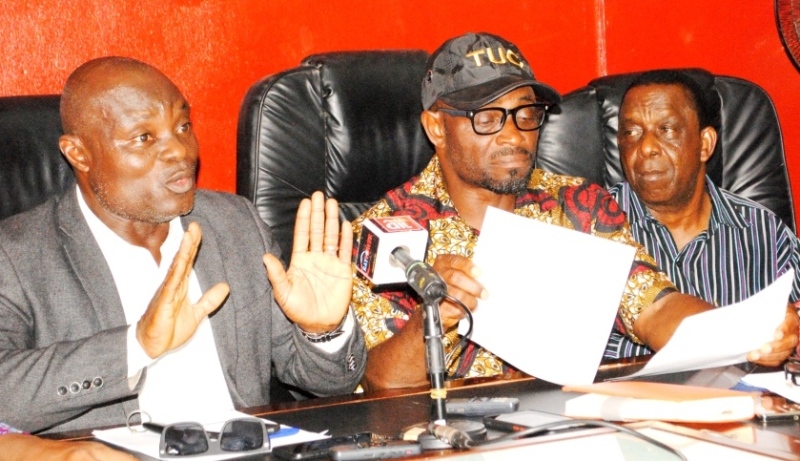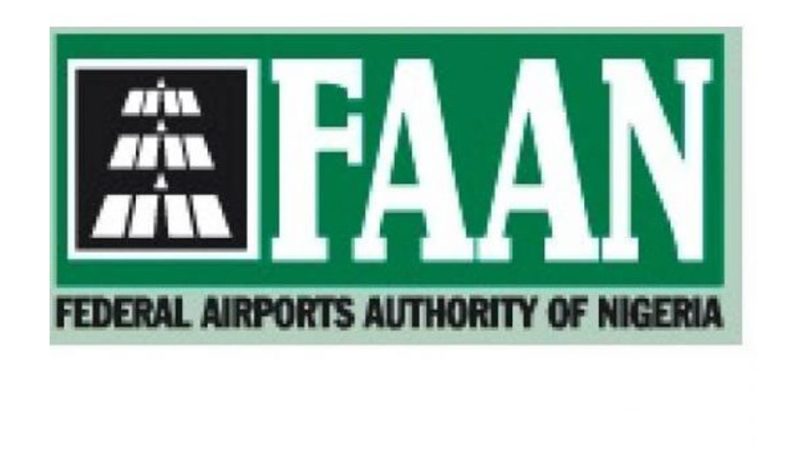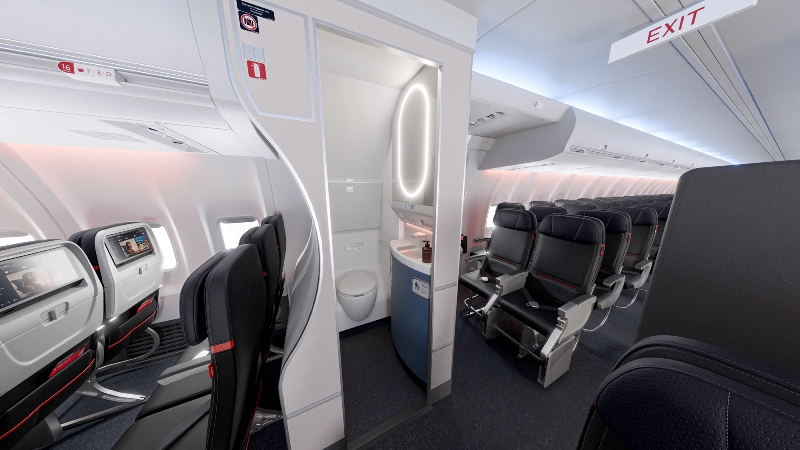The 12-Months Journey Of Strikes, Protests In Nigeria’s Aviation Sector

Flight disruptions and delays in Nigeria commenced on Tuesday, November 23, 2021 across four airports (Abuja Lagos, Port Harcourt and Kano) as the Nigerian Air Traffic Controllers’ Association (NATCA) directed that Air Traffic Controllers begin three hours ‘flow control’ for two days, causing departures to be spaced at 20 minutes interval.
NATCA’s decision to use ‘Flow control’, a traffic flow management technique used in order to regulate the rate at which aircraft enter an airport airspace to a level no greater than the resource can accept, with aircraft usually delayed at the point of departure was to push that management of the Nigerian Airspace Management Agency (NAMA) meets NATCA’s demands to improve their working conditions following the death of a controller, Mr Aniekan Effiong in the early hours of Monday, November 22. The 12 hours within which the Flow Control was observed caused the industry huge losses.
In February 2022, some aviation workers’ unions in Nigeria namely, National Union of Air Transport Employees (NUATE), the Association of Nigeria Aviation Professionals (ANAP) and the Amalgamated Union of Public Corporations, Civil Service Technical and Recreational Services Employees (AUPCTRE) issued notice of a two-day warning strike over a workers’ negotiated conditions of service and other sundry issues that had been neglected for nine years.” Following intervention by the federal government, the planned industrial action was suspended.
In May, 2022, the unions called for a strike following failure of government to implement decisions that caused the February suspension. A statement signed jointly by Ocheme Aba, NUATE General Secretary; Abdulrazaq Saidu, ANAP General Secretary; and Sikiru Waheed, AUPCTRE General Secretary read: “Accordingly, all workers in NAMA, NCAA, NiMeT and NCAT are hereby directed to embark on a 2-day warning strike on the 9th and 10th of May, 2022. Should the warning go unheeded, an indefinite strike shall be called soon after.”
Aba said: “Our demand is simple. We have negotiated conditions of service since 2013 and up till now, they have not been released. We have the 2019 National Minimum Act that is yet to impact on nation’s workers”
“Recently, the Wages Commission approved 10% across board increment as a Consequential Adjustment to agencies. It remains unimplemented.”
“We have two problems with that flat 10% approval. A percentage increase is grossly inevitable. If a person earns N1m, 10% of that is N100,000 and if someone earns N70,000, 10% is N7000, this is grossly inequitable. We have insisted there has to be a graduated percentage increase as a flat increase cannot work for us,” he explained.
The unions’ strike threat came just hours after domestic airlines announced plans to shut down flight operations from same Monday over the hike in fuel price.
On May 6, 2022, the Airline Operators of Nigeria (AON) issued its members a notice to discontinue operations nationwide with effect from Monday May 9, 2022 in reaction to an astronomical hike in the price of JetA1 and other operating costs.
“Overtime, aviation fuel price (JetA1) has risen from N190 per litre to N700 currently. No airline in the world can absorb this kind of sudden shock from such an astronomical rise over a short period. While aviation fuel worldwide is said to cost about 40% of an airline’s operating cost globally, the present hike has shut up Nigeria’s operating cost to about 95%,” AON said in a statement signed by its President, Abdulmunaf Yunusa Sarina. He added that “the unit cost per seat had hit “an average of N120,000. The latter cannot be fully passed to passengers who are already experiencing a lot of difficulties.”
The Minister of Aviation, Hadi Sirika reacted to the notice by saying “Unfortunately the issue of fuel supply is not within the purview of the Ministry and so, the much it can do in the present situation is to engage with agencies, institutions and individuals in positions to provide succour to the airlines.” The Nigerian National Petroleum Corporation (NNPC) and Members of Oil Marketers Association of Nigeria (MOMAN) are in charge of JetA1 supply and distribution in Nigeria.
Some AON members however pulled out from the planned strike. They are Ibom Air, Green Africa Airlines, Arik Air, Dana. As a result, the strike was called off before when it was scheduled to kick off.
On July 14 and 18th, 2022, NUATE and National Association of Aircraft Pilots and Engineers (NAAPE) held a solidarity protest with the umbrella workers’ union, the Nigeria Labour Congress (NLC) on the crisis in Nigeria’s education sector that kept university students across the country at home for nine months as the Academic Union of Nigerian Universities (ASUU) remained on strike.
Flights in and out of airports in a number of countries in West and Central Africa were heavily disrupted on Friday, September 23 and Saturday, September 24, 2022 after air traffic controllers defied a ban and launched a “wildcat strike” to demand working conditions. The strike was suspended on Saturday afternoon.
On September 12, 2022, a coalition of aviation workers’ unions held rallies at airports nationwide to protest anti-labour clauses in new aviation bills currently awaiting the President’s assent. The unions also threatened to proceed with industrial action in the 14 days, if their requests for withdrawal of the bills were not granted.
The coalition made up of NUATE, Air Transport Senior Staff Association of Nigeria (ATSSSAN), NAAPE, ANAP and AUPCTRE decried what they called a subtle attempt to restrain the powers of unions and obliterate unionism in the aviation sector.
They alleged unknown persons in the sector inserted repressive clauses into new bills governing affairs of the Nigerian Civil Aviation Authority (NCAA), Federal Airports Authority of Nigeria (FAAN) and four other aviation agencies.
The contentious clauses state: “All services which facilitate and maintain the smooth, orderly and safe take-off, flight and landing of aircraft, embarkation and disembarkation and evacuation of passengers and cargo respectively in all aerodromes in Nigeria are hereby designated as essential services pursuant to the provisions of Section 11(1) of the Constitution of the Federal Republic of Nigeria, 1999 (as altered).
“The minister may, by regulations, prohibit all or such class or classes of workers, officers and other employees or persons, whether corporate or natural, engaged in the provision of services specified in subsection (1) of this section from taking part in a strike or other industrial action.
“The provisions of the Trade Disputes (Essential Services) Act, Cap. T9, Laws of the Federation of Nigeria, 2004 shall apply to service in the agency, facilities managed by the agency and in the implementation of this bill. There shall be no strikes, lock-outs, pickets, blockades, service disruptions, etc. of any kind within all facilities managed by the agency and where any labour dispute arises, such dispute shall be resolved by the agency.”
The effect of these strikes and protests on the economies of Nigeria and West Africa within the last twelve months can hardly be quantified. The message it sends to those interested in FDI is quietly loud.






